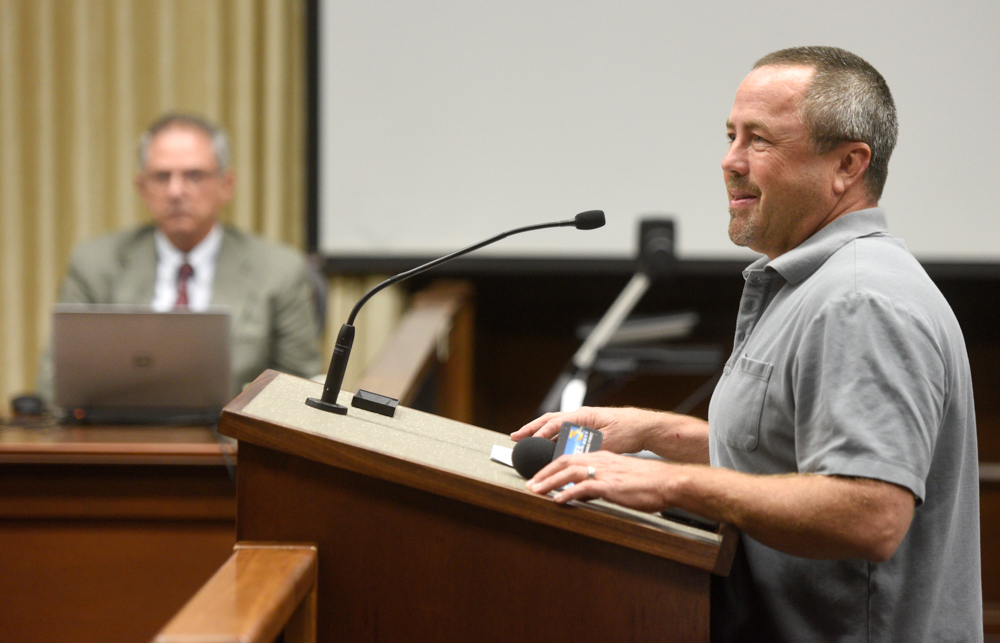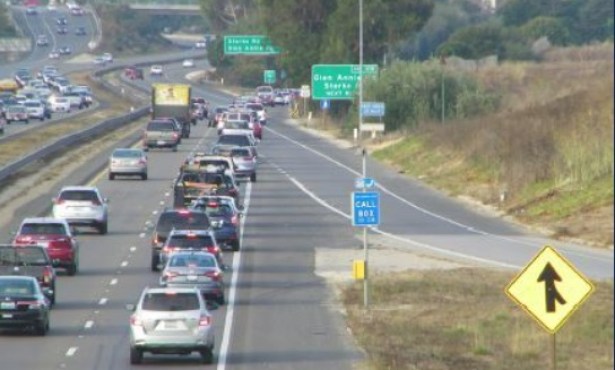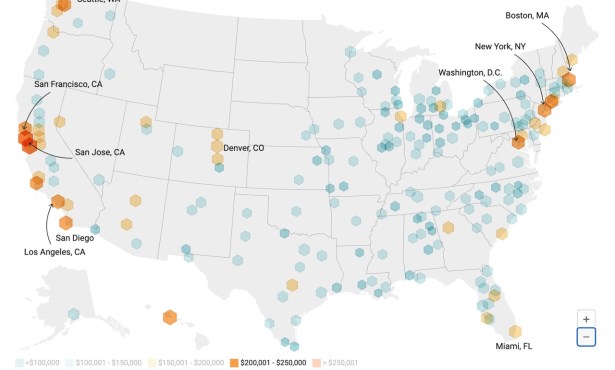City Again Sued Over Vacation-Rental Ban
Courts Allow Coastal Rental Suit to Go Forward

Once again, the City of Santa Barbara is being sued over its crackdown on unpermitted vacation rentals. But this time, the plaintiff is not vacation rental operator Theo Kracke, who won his suit against the city earlier this year.
The plaintiff in this case is a two-man association, known as the Santa Barbara Inland & Coastal Property Rights Association. It’s made up of Eric Ryan, a condo vacation-rental operator, and James Fenkner, his neighbor who owns a vacation rental in the same complex. Fenkner is the president of the association and has made a civic emergence in recent years as the founder of Fair Education, a group that is involved in a separate lawsuit against the Santa Barbara School District.
Fenkner’s suit is over one of his two Santa Barbara properties — a condo on Bath Street he has rented out as a 30-days-or-less vacation rental. The city told Fenkner multiple times from 2013-2015 that he could not use his property as a short-term rental unless he converts it to a hotel, but Fenkner said he doesn’t want to because he plans to live in the condo later on after his children move out of the house.
He also said the condo has been used as a vacation rental for 15 years, long before he owned it. He said he only ran into trouble with the city when he registered it as a business, although there are “thousands of unregistered vacation rentals that aren’t flagged by the city.” He said that immediately after filing the legal claim two years ago, owners of rentals in the R-4 Zone, where his and Ryan’s Bath Street condos are located, were given licenses to continue operating, and he said he has continued to pay transient occupancy taxes and rent out his unit ever since.

Fenkner’s association is represented by Joseph Liebman, a heavy-lifting mass tort disaster attorney who counseled more than 400 survivors of the Thomas Fire and Montecito Debris Flow. Judge Thomas Anderle of the Santa Barbara Superior Court issued a tentative ruling in their favor on six out of seven points in a summary judgment motion by the city. The tentative ruling does not mean the case is a slam dunk; rather, it means Anderle found six of Fenkner’s points to be worthy of actually going to trial and won’t be immediately thrown out.
“I am very encouraged by the initial findings from Judge Anderle’s tentative ruling,” Fenkner said. Although Fenkner has become known for his groups’ lawsuits against the school district, he said he had never filed a lawsuit of any type before moving to Santa Barbara.
The suit comes after a unanimous 7-0 City Council vote in 2015 to ban all vacation rentals in residential zones city-wide.
Fenkner’s largest argument is that the city’s municipal code is “unconstitutionally vague and overbroad,” because it doesn’t list short-term vacation rentals as being the same as a hotel, and therefore does not require short-term rentals in residential zones to get the same permits and licensure as hotels.
Robin Lewis, representing the city from the City Attorney’s office, said that although the word “short-term vacation rental” isn’t in the code, it should be clearly implied. She said that just because Fenkner obtained a business license doesn’t mean he obtained the authorization to actually operate his property as such. Despite this, Judge Anderle still tentatively ruled in Fenkner’s favor on that one.
Because the rental is in the coastal zone, one of the suit’s charges is that city’s enforcement on his property violates the California Coastal Act, which requires jurisdictions along the coast to provide affordable lodging within the coastal zone. This was the same argument Theo Kracke used to win his case for his vacation rental business Paradise Retreats. The courts tentatively ruled in Fenkner’s favor, too.
The court did give the city one win, though. Fenkner’s association sought to impose civil penalties on the city for every citation on the Bath Street condo. The fines could range from $1,000 to $15,000 a day for each day the city requests the rentals to shut down. The judge wasn’t having that argument, and it was the only adjudication granted to the city in the tentative ruling, meaning it won’t be on the table when the case goes to trial.
The case will go to trial in early spring 2020.




You must be logged in to post a comment.